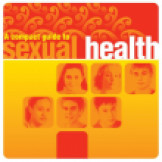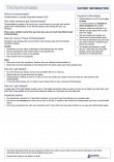Reviewed by Psychology Today Staff
Building Blocks
How do babies think?
Research on infant thinking suggests that babies are more complex thinkers than was once believed. There is now evidence that, by the end of their first year, children are capable of logical reasoning, testing hypotheses about the world and spending time pondering unexpected discoveries. And, like scientists, babies appear to use process of elimination to come to conclusions.
How do children acquire language?
Young children aspire to repeat the words they hear most often, but context is as important as frequency: Before they use words like the or and, babies focus on words emphasized by their caregivers, those that describe their environment, and their personal interests. Cultural influence also plays a role: In some regions, a child’s first words tend to include more verbs, and in others, terms referring to extended-family relationships come first. In the U.S., where labeling and naming objects is a common part of infant play, babies are more likely to learn words like dog, cat, duck, and kitty. Through large-scale cross-cultural studies, though, a few universal words have been revealed: mommy, daddy, hello, bye, uh-oh, and woof-woof.
What is metacognition?
How much of a child’s intelligence is locked in during early childhood?
How does an involved father benefit cognitive development?
How does conversation strengthen brain development?
Does early exposure to music boost a child’s cognitive development?
How do children acquire prejudices?
Imagination and Play
When do young children learn to distinguish fantasy from reality?
Discriminating fact from fiction can be especially difficult for young children, since their experience of the real world is limited and so much of the media to which they are exposed is based in fantasy or magic. For example, to a child, a picture book about actual astronauts and one about fictional aliens may appear equally real. Yet research shows that, as early as age 3, many children have developed an ability to determine whether content from stories and videos applies to the real world. A parent’s testimony of how the world works is an essential element in this development, along with children’s growing experience of the real world.
Is it a problem if children believe Santa Claus is real?
There has been a good deal of debate over the years about whether stories of Santa Claus, and parental efforts to actively maintain that Santa and other holiday-based characters are real, are harmful to children and their cognitive development. Research shows, though, that virtually all children figure out the truth about Santa Claus by around age 7, even without their parents confessing the truth, and that few children react negatively to the discovery. Children, research further suggests, implicitly understand that fantasy and pretend play is a healthy and fun part of their own development and so they rarely come to resent adults sharing fantasies with them.
How does time playing outside benefit cognitive development?
Do video games hinder cognitive development?
Will too much screen time limit a child’s cognitive development?
Early School Learning
Will starting formal learning as early as possible boost a child’s cognitive development?
It may appear that this is the case, but research shows that the benefit does not last. Formal early learning does produce clear short-term gains for young children, giving many a head start in kindergarten or first grade. But the effect fades quickly: By second or third grade, children who attended formal pre-kindergarten programs are no longer further advanced academically than kids who started their schooling later; in fact, some research suggests that those who started earlier eventually fare worse than others.
What should parents look for in a kindergarten program?
Experts have long debated whether preschool and kindergarten programs should emphasize academic skills or socialization, but a growing body of research supports the latter, for both social and cognitive benefits. Some studies have suggested that while students raised in poverty who attended academic early-childhood programs had initial advantages over peers in elementary school, children who went to play-based kindergartens started earning higher grades by fourth grade. No matter what type of program a family chooses, emphasizing play, socialization, and initiative at home during early childhood delivers clear benefits for children in later years.

 Image: Canva
Image: Canva
 Phone
Phone 



